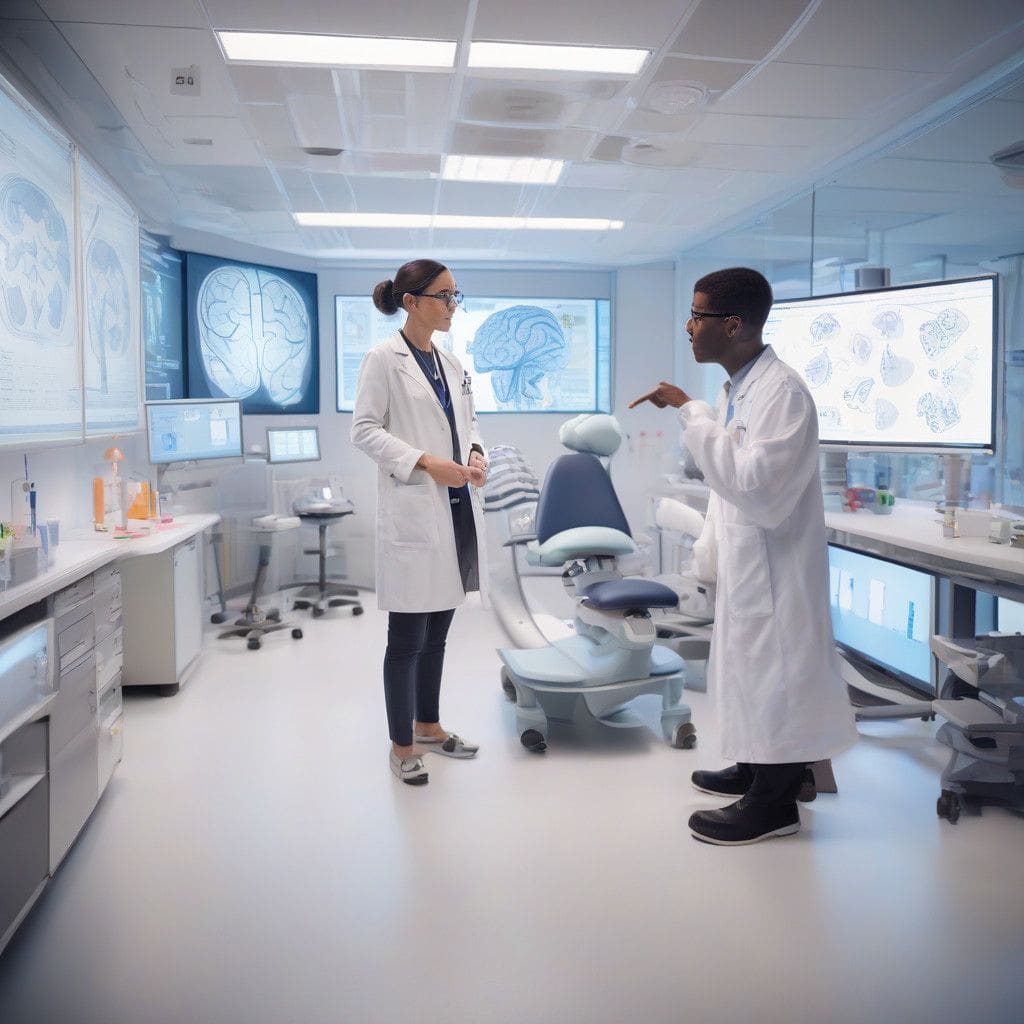In an exciting turn of events, researchers in the UK are harnessing the power of artificial intelligence (AI) to revolutionize the treatment of children’s brain tumours. The Cancer Research UK Children’s Brain Tumour Centre of Excellence in Cambridge is at the forefront of this initiative, which aims to significantly improve survival rates for young patients grappling with this devastating illness.
To put this in perspective, approximately 420 children in the UK are diagnosed with brain tumours each year. The majority of these diagnoses pose a significant challenge, particularly for those battling aggressive forms of the disease, who may not survive beyond a single year. This shocking statistic underscores the urgent need for more effective and innovative treatment methods.
Dr. Elizabeth Cooper, a prominent researcher at the centre, emphasizes a crucial difference between children’s and adults’ brain tumours. The ongoing development of children’s brains introduces complexities that make conventional treatments less effective. For instance, immunotherapy, which shows promise for various cancers, has not yielded the same results in brain tumour cases. The unique immune environment in a child’s brain remains poorly understood, which presents a barrier to successful treatment.
Under the guidance of co-director Professor Richard Gilbertson, the research team is dedicated to addressing this gap. They are actively working on developing new drugs that prioritize the health and safety of young patients. With a generous grant backing their efforts, this initiative plans to implement AI in the creation of digital models of complex brain tumours. These models will serve as platforms for virtual trials, enabling researchers to explore less harmful treatment options compared to the traditional therapies like radiotherapy, which can lead to severe side effects in children.
The innovative approach of employing AI technology in medical research is gaining momentum across various fields, predominantly due to its potential to analyze vast datasets and identify patterns that may not be immediately apparent to human researchers. By simulating how different treatments might react with specific tumour characteristics, researchers aim to tailor therapies that could provide effective and personalized care for young patients.
One of the key aspects of this pioneering work is the focus on reducing toxicity. Traditional treatments often come with severe side effects that can drastically affect the quality of life for children undergoing therapy. The team’s research into identifying alternatives that minimize harmful impacts reflects a growing trend in medicine towards patient-centered approaches that seek to enhance well-being during treatment.
Research has shown promise in other areas through AI applications. For instance, a groundbreaking study published in the journal Nature demonstrated that AI could aid in diagnosing various medical conditions by analyzing medical images, which is particularly relevant for oncology. Similarly, leveraging these advancements in the context of paediatric brain tumours holds significant implications.
Furthermore, using AI to run virtual trials can accelerate the research process. Typically, conducting clinical trials requires substantial time and financial investment, often spanning several years. Virtual trials powered by AI can streamline many of these procedures, allowing researchers to test hypotheses more quickly and with lower financial risk, hence expediting the journey from research to real-world applications.
In summary, the integration of AI into the field of children’s medicine, especially concerning brain tumours, signifies a monumental step forward. The meticulous efforts at the Cancer Research UK Children’s Brain Tumour Centre of Excellence are a testament to how innovation and technology can converge to improve healthcare outcomes. As more data is collected and analyzed, the understanding of how to effectively treat these complex tumours will continue to evolve, offering renewed hope for children and their families facing daunting health challenges.
The initiative not only offers a beacon of hope for the current generation but also paves the way for future research, setting a precedent for how AI can shape medical practices across various disciplines. With ongoing support and investment, the promise of AI technology could very well redefine the treatment landscape for children with brain tumours in the UK and beyond.












